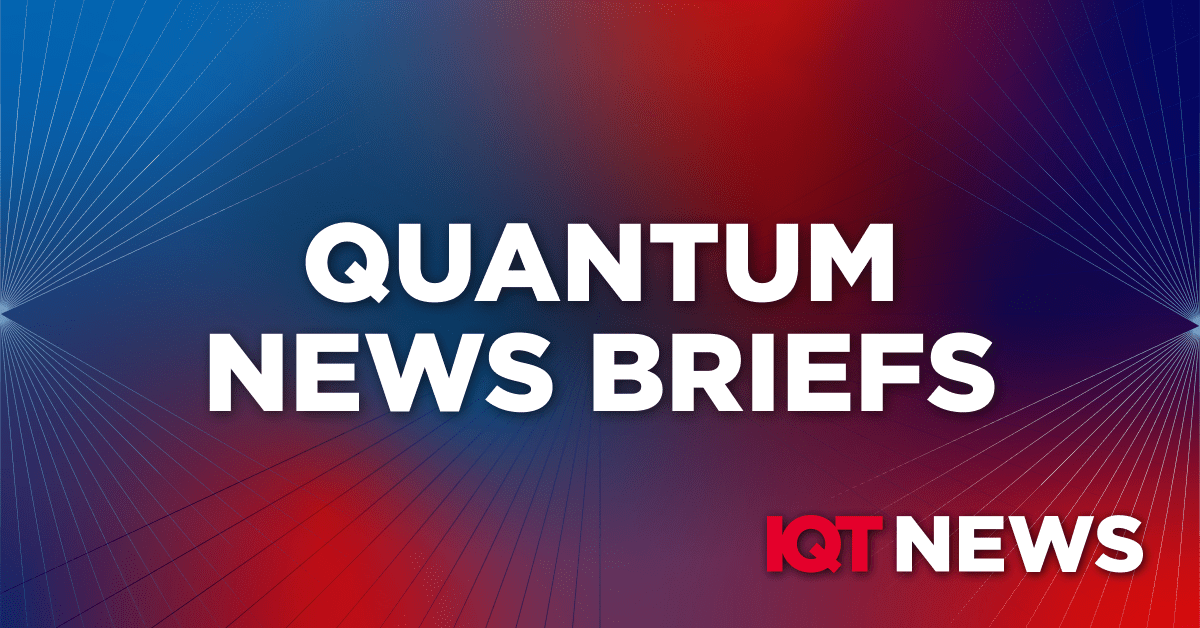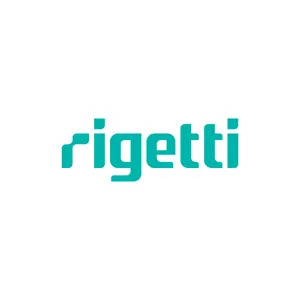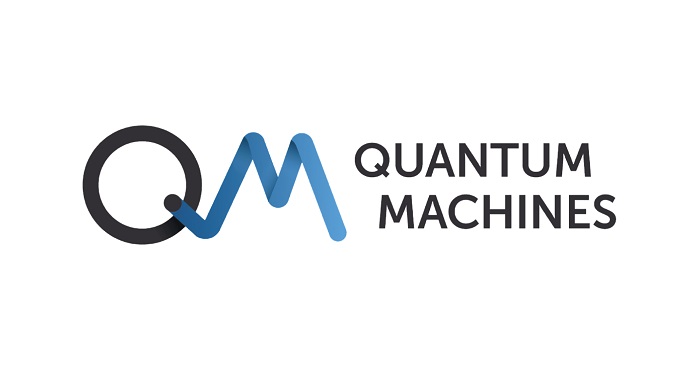
By Kenna Hughes-Castleberry posted 28 Feb 2024
Quantum News Briefs: February 28, 2024:
Riverlane and Rigetti Computing Partner with Oak Ridge National Laboratory to Work to Improve HPC-Quantum Integration

Riverlane, a leader in quantum error correction technology, and Rigetti, a pioneer in quantum-classical computing, have joined a project led by the US Department of Energy’s Oak Ridge National Laboratory (ORNL) to investigate the integration of quantum computers with large-scale supercomputing centers. This collaboration aims to address the potential of quantum computing to solve problems beyond the reach of traditional supercomputers by developing the first benchmarking suite, ‘QStone’, to evaluate the performance of combined high-performance computing (HPC) and quantum systems. The benchmarking will utilize ORNL’s Summit supercomputer and simulated and real quantum hardware from Riverlane and Rigetti. The project underscores the importance of quantum computing in future computing landscapes. It aims to share insights on interoperability and performance issues, contributing to advancing quantum computing integration with HPC systems.
Quantum Machines Releases New Control System that Utilizes Digital Direct Synthesis to Deliver Record Analog Performance and Qubit Control Density

Quantum Machines has unveiled an innovative microwave front-end module (MW-FEM) for its OPX1000 quantum control platform, marking a significant advancement in quantum computing control technology. This industry-first integration combines a processor-based controller with all-digital signal generation through advanced direct digital synthesis (DDS) technology, capable of generating precise microwave signals across a wide frequency range. The module boasts exceptional signal fidelity, high-speed sampling rates, ultra-low phase noise, and superior spectral purity, enhancing qubit manipulation accuracy. Additionally, it features a compact design allowing for scalable control capacity and incorporates Quantum Machines’ unique Pulse Processing Unit (PPU) for efficient real-time quantum algorithm processing. Revealed as a highly anticipated product with strong early demand, the MW-FEM is positioned to significantly impact the field by providing researchers and quantum computer developers with an essential tool for complex multi-qubit applications, offering unparalleled performance and flexibility in quantum system control.
D-Wave Launches Starter Course to Bridge Critical Skills Gap in Future Quantum Workforce
![]() D-Wave Quantum Inc., a pioneer in quantum computing, has introduced a novel six-module training course titled “Foundations for Quantum Programming” to meet the growing demand for skilled quantum programmers. This self-paced, online course is designed to equip participants with the fundamental mathematics and Python programming skills necessary for quantum computing, serving as an essential precursor to D-Wave’s advanced “Quantum Programming Core” course. Featuring video presentations, quizzes, and hands-on programming exercises, the course requires approximately 10 hours to complete, during which learners will acquire key skills in problem-solving, mathematical expression, and Python programming for quantum applications. This initiative is part of D-Wave’s broader effort to bridge the quantum computing expertise gap identified by a 2022 Hyperion Research survey, aiming to foster a quantum-ready workforce across various roles and industries. Further supporting learners, D-Wave offers a wealth of free resources and access to its Leap™ quantum cloud service, enabling practical application development on quantum and hybrid solvers.
D-Wave Quantum Inc., a pioneer in quantum computing, has introduced a novel six-module training course titled “Foundations for Quantum Programming” to meet the growing demand for skilled quantum programmers. This self-paced, online course is designed to equip participants with the fundamental mathematics and Python programming skills necessary for quantum computing, serving as an essential precursor to D-Wave’s advanced “Quantum Programming Core” course. Featuring video presentations, quizzes, and hands-on programming exercises, the course requires approximately 10 hours to complete, during which learners will acquire key skills in problem-solving, mathematical expression, and Python programming for quantum applications. This initiative is part of D-Wave’s broader effort to bridge the quantum computing expertise gap identified by a 2022 Hyperion Research survey, aiming to foster a quantum-ready workforce across various roles and industries. Further supporting learners, D-Wave offers a wealth of free resources and access to its Leap™ quantum cloud service, enabling practical application development on quantum and hybrid solvers.
Q-CTRL teams up with Wolfram, Qblox, and others to deliver a complete quantum computing toolset for researchers and enterprises
![]()
Q-CTRL, a trailblazer in quantum infrastructure software, has announced significant product integrations with industry leaders Wolfram, Aqarios, qBraid, Qblox, and Keysight, aimed at enhancing quantum research, commercialization, and adoption across various sectors. These partnerships leverage Q-CTRL’s AI-driven performance-management software and quantum control capabilities, integrating them with various hardware and software platforms to facilitate access to Q-CTRL’s technology for a broad audience, from students to enterprise developers. Notable collaborations include integrating Fire Opal with Mathematica for algorithm performance enhancement, the Aqarios Luna platform for building quantum solutions, and qBraid for streamlined quantum application development. Additionally, Boulder Opal’s integration with Qblox and Keysight emphasizes hardware optimization and automation, showcasing Q-CTRL’s commitment to making quantum technology more accessible and efficient. These strategic alliances, likened to industry-defining partnerships like Microsoft and Intel, aim to drive the quantum tech industry forward by supporting researchers and developers in leveraging advanced technologies for their projects, marking a significant step toward the practical implementation of quantum computing.
Russian scientists create a 20-qubit quantum computer with plans grow up to 100 qubits
Russian scientists have achieved a significant advancement in quantum computing by developing a 20-qubit quantum computer, with ambitions to expand its capacity to between 50 and 100 qubits in the near future. This advancement, announced by Ruslan Yunusov, an advisor to the CEO of Rosatom, in an interview with TASS, represents a new record for the country, surpassing the previous 16-qubit computer demonstrated to President Vladimir Putin last year. The 20-qubit machine, based on an ion platform and a 25-qubit counterpart on a nuclear platform, highlight Russia’s ongoing commitment to scaling up its quantum computing capabilities. This progress aligns with the nation’s strategic roadmap for quantum computing, which includes a substantial $790 million investment over five years announced in 2021 and President Putin’s vision for transforming Russia’s economy, social sphere, and government operations through advanced data and quantum technologies by 2030.
In Other News: Live Science article: “‘Quantum memory breakthrough’ may lead to a quantum internet”

Scientists have made a groundbreaking advancement towards realizing a “quantum internet” by creating a network of “quantum memories” that operates at room temperature, a first in the field, a new Live Science article highlights. This development, detailed in a paper published in the Nature journal Quantum Information, involved successfully storing and retrieving two photonic qubits at the quantum level. Quantum memory, essential for the quantum internet, enables data storage as qubits, which can exist in a superposition of states, unlike classical binary states. This achievement by researchers from Stony Brook University, who managed to store photons in rubidium gas at room temperature, marks a significant step forward from previous quantum networks that required cooling to absolute zero. The experiment’s success, highlighted by the interference of two retrieved photons, demonstrates a critical move towards a quantum internet that promises faster, inherently secure communications and could revolutionize data transmission by harnessing quantum mechanics.
In Other News: Defense One article: “The Navy is trying to use quantum computers to task spy satellites”
![]()
A recent Defense One article explains that despite the longstanding joke that the breakthrough in quantum computing is always a decade away, the U.S. Navy is actively exploring quantum computing’s potential to solve complex problems, such as satellite scheduling, which is considered an NP-hard problem. At the AFCEA West conference in San Diego, Lennart Gunlycke, technical director of the Navy’s Quantum Program, highlighted the Navy’s progress in this area. Quantum computers, which operate on qubits allowing for a vast computational space, are being eyed for their ability to perform tasks unmanageable for traditional computers. IBM, a key player in the field, plans to introduce three 100,000-qubit machines by 2033, in collaboration with the University of Chicago and the University of Tokyo, promising unprecedented computational power. Beyond military applications, such as chemical simulations to understand ship corrosion, quantum computing holds potential for optimizing commercial technologies, including aircraft material development. However, concerns about the U.S. falling behind in quantum computing investment compared to China were voiced, emphasizing the need for increased public funding in this critical area of technological advancement.
Kenna Hughes-Castleberry is the Managing Editor at Inside Quantum Technology and the Science Communicator at JILA (a partnership between the University of Colorado Boulder and NIST). Her writing beats include deep tech, quantum computing, and AI. Her work has been featured in National Geographic, Scientific American, Discover Magazine, New Scientist, Ars Technica, and more.
- SEO Powered Content & PR Distribution. Get Amplified Today.
- PlatoData.Network Vertical Generative Ai. Empower Yourself. Access Here.
- PlatoAiStream. Web3 Intelligence. Knowledge Amplified. Access Here.
- PlatoESG. Carbon, CleanTech, Energy, Environment, Solar, Waste Management. Access Here.
- PlatoHealth. Biotech and Clinical Trials Intelligence. Access Here.
- Source: https://www.insidequantumtechnology.com/news-archive/quantum-news-briefs-february-28-2024-riverlane-and-rigetti-computing-partner-with-oak-ridge-national-laboratory-to-work-to-improve-hpc-quantum-integration-quantum-machines-releases-new-control-sys/
- :has
- :is
- $UP
- 10
- 100
- 150
- 2021
- 2022
- 2024
- 2030
- 28
- 41
- 50
- 7
- 91
- a
- ability
- About
- Absolute
- access
- accessible
- accuracy
- achievement
- acquire
- across
- actively
- Additionally
- address
- Adoption
- advanced
- advancement
- advancing
- advisor
- AI
- aim
- aimed
- Aiming
- aims
- aircraft
- algorithm
- Aligns
- Alliances
- Allowing
- always
- ambitions
- American
- an
- analog
- and
- announced
- Anticipated
- Application
- Application Development
- applications
- approximately
- ARE
- AREA
- AS
- At
- audience
- Automation
- away
- based
- beats
- been
- behind
- being
- benchmarking
- between
- Beyond
- boasts
- breakthrough
- BRIDGE
- broad
- broader
- Building
- by
- CAN
- Canada
- capabilities
- capable
- Capacity
- categories
- Centers
- ceo
- chemical
- chicago
- China
- Cloud
- collaboration
- collaborations
- Colorado
- COM
- combined
- combines
- commercial
- commercialization
- commitment
- Communications
- compact
- compared
- complete
- complex
- computational
- computational power
- computer
- computers
- computing
- Concerns
- Conference
- considered
- contributing
- control
- controller
- could
- Counterpart
- country
- Course
- create
- Creating
- critical
- D-Wave
- D-Wave Systems
- data
- data storage
- decade
- deep
- Defense
- deliver
- Demand
- demonstrated
- demonstrates
- Department
- Design
- designed
- Despite
- detailed
- developers
- developing
- Development
- Diego
- digital
- direct
- Director
- discover
- drive
- during
- Early
- economy
- editor
- efficient
- effort
- emphasizes
- emphasizing
- enables
- enabling
- enhancing
- Enterprise
- enterprises
- equip
- error
- essential
- evaluate
- exceptional
- exist
- Expand
- expertise
- Explains
- Exploring
- expression
- facilitate
- Falling
- faster
- featured
- Features
- Featuring
- Feb
- February
- fidelity
- field
- First
- five
- Flexibility
- For
- Forward
- Foster
- Free
- Frequency
- from
- fundamental
- funding
- further
- future
- gap
- GAS
- generating
- generation
- geographic
- gif
- Government
- groundbreaking
- Grow
- Growing
- hands-on
- Hardware
- Harnessing
- Have
- her
- High
- high-performance
- Highlight
- Highlighted
- highlights
- highly
- holds
- HOURS
- However
- hpc
- HTML
- http
- HTTPS
- Hybrid
- Hyperion Research
- IBM
- identified
- image
- Impact
- implementation
- importance
- improve
- in
- Inc.
- include
- includes
- Including
- incorporates
- increased
- industries
- industry
- information
- Infrastructure
- inherently
- Initiative
- innovative
- inside
- Inside Quantum Technology
- insights
- Integrating
- integration
- integrations
- Intel
- Interference
- Internet
- Interoperability
- Interview
- introduce
- introduced
- investigate
- investment
- involved
- issues
- IT
- ITS
- journal
- jpg
- Key
- Korean
- laboratory
- landscapes
- large-scale
- Last
- Last Year
- launches
- lead
- leader
- leaders
- leading
- learners
- Led
- Level
- Leverage
- leveraging
- like
- live
- longstanding
- Luna
- machine
- Machines
- made
- magazine
- Making
- managed
- managing
- Manipulation
- marking
- material
- mathematical
- mathematics
- max-width
- May..
- mechanics
- Meet
- Memory
- Microsoft
- Military
- Military Applications
- million
- Module
- more
- move
- National
- Nations
- Nature
- Near
- necessary
- Need
- net
- network
- networks
- New
- news
- nist
- Noise
- notable
- novel
- nuclear
- oak
- Oak Ridge National Laboratory
- of
- offering
- Offers
- on
- ONE
- ongoing
- online
- operate
- operates
- operational
- Operations
- optimization
- optimizing
- ORNL
- Other
- Others
- over
- Pacific
- Paper
- part
- participants
- partner
- Partnership
- partnerships
- Perform
- performance
- phase
- Photons
- pioneer
- plans
- platform
- Platforms
- plato
- Plato Data Intelligence
- PlatoData
- player
- positioned
- posted
- potential
- power
- Practical
- precise
- precursor
- Presentations
- president
- previous
- Problem
- problem-solving
- problems
- processing
- Product
- Program
- Programmers
- Programming
- Progress
- project
- projects
- promises
- promising
- providing
- public
- published
- pulse
- Putin
- Python
- Q-CTRL
- Quantum
- Quantum Computer
- quantum computers
- quantum computing
- quantum error correction
- quantum information
- Quantum Internet
- Quantum Mechanics
- quantum networks
- Quantum Program
- quantum research
- quantum systems
- quantum tech
- quantum technology
- Qubit
- qubits
- range
- Rates
- reach
- real
- real-time
- realizing
- recent
- record
- Releases
- represents
- required
- requires
- research
- researchers
- Resources
- Revealed
- revolutionize
- Riverlane
- roadmap
- roles
- Room
- russian
- s
- San
- San Diego
- satellite
- satellites
- scalable
- scaling
- scheduling
- Science
- Science & Technology
- scientific
- Scientist
- scientists
- Sectors
- secure
- service
- serving
- Share
- SHIP
- showcasing
- Signal
- signals
- significant
- significantly
- simulations
- skilled
- skills
- skills gap
- Social
- Software
- Solutions
- SOLVE
- Space
- Spectral
- sphere
- States
- Step
- storage
- store
- storing
- Strategic
- Strategic Alliances
- Strategic Partnerships
- streamlined
- strong
- Students
- substantial
- success
- Successfully
- such
- suite
- Summit
- supercomputer
- Supercomputing
- superior
- superposition
- Supporting
- surpassing
- Survey
- sustainable
- Sustainable Development
- SVG
- synthesis
- system
- Systems
- Task
- tasks
- teams
- tech
- tech industry
- Technical
- technological
- Technologies
- Technology
- that
- The
- their
- Them
- These
- this
- three
- Through
- titled
- to
- tokyo
- tool
- toward
- towards
- traditional
- trailblazer
- Training
- transforming
- transmission
- true
- trying
- two
- u.s.
- underscores
- understand
- unique
- unit
- university
- University of Chicago
- University of Tokyo
- unlike
- unparalleled
- unprecedented
- unveiled
- us
- use
- utilize
- utilizes
- various
- Vast
- Video
- vision
- Vladimir Putin
- Wealth
- were
- West
- which
- WHO
- wide
- will
- with
- Work
- Workforce
- writing
- Yahoo
- year
- years
- zephyrnet
- zero










